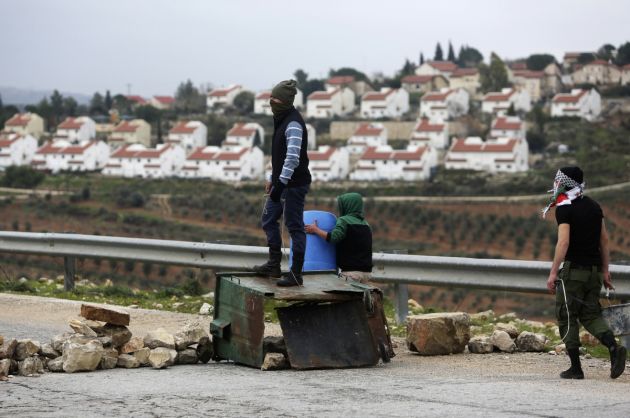Israel says it won't assist 'biased' UN on Jewish settlements report

Israel says it will not cooperate with the UN Fact Finding Mission on Jewish settlement expansion into Palestinian areas due to its "one-sided, biased treatment of Israel."
Israel's Ambassador to Switzerland, Yigal Caspi told Ecumenical News during an online press conference on Friday, "I believe it's immoral that the international community focuses on the settlements while there's slaughter going on in Syria.
"And let me remind you only Israel is named in the UNHRC (United Nations Human Rights Council) chart, in its article Number 7."
A UN fact-finding mission on Thursday called on Israel to halt establishing settlements in occupied Palestinian territory developed for the exclusive benefit of Israeli Jews.
The International Fact-Finding Mission on Israeli Settlements in the Occupied Palestinian Territory on Jan. 31 published a draft of its report for discussion at the Human Rights Council in Geneva on March 18.
Israeli officials cite the fact there are 172 UN resolutions about Palestinian refugees and none about Jewish refugees from Arab countries as proof of United Nations bias.
Christine Chanet, the French chair of the UN mission, said that under the Fourth Geneva Convention Israel must unconditionally cease all its settlement activities.
The Israeli foreign ministry issued a response saying, "The only way to resolve all pending issues between Israel and the Palestinians, including the settlements issue, is through direct negotiations without pre-conditions.
"Counterproductive measures, such as the report published today, will only hamper efforts to find a sustainable solution to the Israel-Palestinian conflict. The Human Rights Council has sadly distinguished itself by its systematic, one-sided and biased approach towards Israel."
The UN report noted, "The settlements are maintained and advanced through a system of total segregation between the settlers and the rest of the population living in the Occupied Palestinian Territory.
"This system of segregation is supported and facilitated by strict military and law enforcement control to the detriment of the rights of the Palestinian population."
Some 520,000 Israeli settlers live in about 250 separate settlements in East Jerusalem and the rest of the West Bank, some of them without the approval of the government, the report states.
Israel refused to co-operate with the investigators from the UN High Rights Council over the report and it barred their access to the West Bank.
The Geneva-based non-governmental organization UN Watch, however, supported the Israeli government stance. It said the UN report "exemplifies a biased approach that hinders peace."
"UN Watch is astonished by the commission's failure to make even a single reference to our lengthy submission, a 54-page document with 257 footnotes."
It said its own submission to the commission "provided essential context that the commissioners inexplicably chose to ignore."
"The council report is categorically one-sided, casting Palestinians as the sole victims of the Arab-Israeli conflict, while denying the slightest consideration to any basic human rights for Israelis."
UN Watch said the report disregarded the "thousands of suicide bombings, knifings, and other terrorist attacks committed by Palestinian Arab groups, failing to acknowledge how this violence brought about Israeli security measures in the territories that did not previously exist."
The report lacked "nuance", said the Geneva group, regarding Israeli communities. UN Watch said it put "remote settlement outposts into the same category as Jerusalem neighborhoods, thereby ignoring previous peace plans such as the Geneva Accord and the Clinton Plan."
UN Watch said, "The reality is that the HRC's fact-finding enterprise is dedicated chiefly to attacking but one country: Israel."
It said since the rights council began its work there had been "seven one-sided inquiry missions on Israel," and only five on the rest of the world combined.
"Mass atrocities committed by Iran, China, or Sri Lanka, for example, have never been subjected to a single HRC inquiry."
The council began its work in 2006 and it consists of 47 UN members elected by the General Assembly. It replaced the former United Nations Commission on Human Rights.